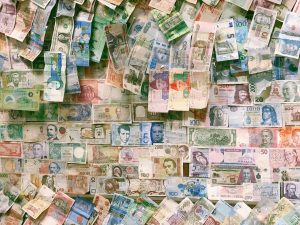Forex, also known as foreign exchange, is the largest financial market in the world. It involves the buying and selling of currencies of different countries. Forex brokers act as intermediaries between traders and the market. They provide traders with a platform to buy and sell currencies and charge a commission for their services. Commission is a fee charged by forex brokers for executing trades on behalf of their clients. In this article, we will explore what commission means with forex brokers.
Commission in Forex Trading
Forex brokers earn their income by charging a commission on the trades executed on their platform. The commission charged varies from broker to broker and can be a fixed fee or a percentage of the trade value. The commission is usually deducted from the profit or loss made on the trade.
For example, if a trader buys 100,000 units of EUR/USD at 1.2000 and sells it at 1.2100, making a profit of 100 pips, the profit made will be $1,000. If the broker charges a commission of $10 per lot, the commission charged for the trade will be $20 (100,000 divided by 100, multiplied by $10). Therefore, the net profit made by the trader will be $980 ($1,000 minus $20).
Types of Commission
Forex brokers charge commission in different ways. The most common types of commission are:
1. Spread-based Commission
In this type of commission, the broker charges a fixed or variable spread on the trade. The spread is the difference between the bid and ask price of a currency pair. The broker earns its commission by widening the spread, which is the difference between the bid and ask price. The wider the spread, the higher the commission charged by the broker.
2. Commission-based Commission
In this type of commission, the broker charges a fixed fee or a percentage of the trade value as commission. The commission charged is usually deducted from the profit or loss made on the trade. This type of commission is popular among traders who trade frequently and in large volumes, as they can negotiate a lower commission rate with the broker.
Factors that Affect Commission
The commission charged by forex brokers depends on various factors, such as:
1. Broker Type
The type of broker can have a significant impact on the commission charged. For example, ECN brokers charge a lower commission than market makers because they provide direct market access to their clients.
2. Currency Pair Traded
The commission charged by brokers can vary depending on the currency pair traded. Some currency pairs are more volatile than others, and the broker may charge a higher commission to cover the higher risk.
3. Trading Volume
The commission charged by brokers can also depend on the trading volume. Traders who trade in large volumes can negotiate a lower commission rate with their broker.
4. Account Type
Forex brokers offer different types of accounts with varying commission rates. Traders can choose an account type that suits their trading style and budget.
Conclusion
Commission is a fee charged by forex brokers for executing trades on behalf of their clients. Forex brokers earn their income by charging a commission on the trades executed on their platform. The commission charged varies from broker to broker and can be a fixed fee or a percentage of the trade value. The commission charged by brokers depends on various factors, such as broker type, currency pair traded, trading volume, and account type. Traders should choose a broker that offers competitive commission rates and a reliable trading platform to maximize their profits in forex trading.





